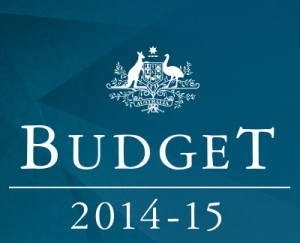Budget will increase inequality: Senate report
 The latest federal budget is likely to exacerbate income inequality and poverty in Australia, including among newly-arrived migrants, according to a Senate report into inequality.
The latest federal budget is likely to exacerbate income inequality and poverty in Australia, including among newly-arrived migrants, according to a Senate report into inequality.
The report titled ‘Bridging our growing divide: inequality in Australia’ and produced by the federal parliament’s Labor and Greens-dominated Community Affairs References Committee recommends the federal government not proceed with a range of budget measures.
These include the ‘earn or learn’ requirements for under-30s; the linking of pension indexation to the CPI; changes to family tax benefits and increases to the retirement age.
Committee chair and Greens Senator Rachel Siewert said this week that the report found that the Newstart payment is too low. The income of a single, adult Newstart recipient is now more than $100 per week below the Henderson poverty line.
The report says that newly arrived migrants (particularly those without English), Aboriginal and Torres Strait Islander people, people with disability, people living with a mental illness and single parents are more vulnerable to poverty and disadvantage.
It also says that the minimum wage remains an important mechanism for low income people to avoid poverty and participate in society and that it is “important that the minimum wage is set at a level that reflects the rising cost of living in Australia”.
It argues that there is a need to carefully consider how the income support system can assist the large and growing number of people with insecure work (casual, short-term contracts).
“There is a cohort within the Australian labour market that moves in and out of short-term, low skilled work. It is very difficult for these people to develop the financial and personal resilience to move out of poverty and secure stable housing.”
It has found that the mobility of labour is often a factor that limits people’s employment opportunities. People looking for work, particularly those in disadvantaged groups, may not be able to move due to financial constraints, family obligations or are often reluctant to move from their existing support networks in search of employment.
It says decent and stable housing is fundamental to the ability of people on income support and those on low incomes to remain in the labour force and participate in society.
“A shortage of supply, and various factors fuelling demand for housing, has led to record high house prices and private rents. Those on a low income are typically excluded from buying a property and often from even renting in the private market. There are long waiting lists to enter public and social housing. Studies show the importance of Commonwealth Rent Assistance in helping those on low incomes avoid housing stress. Moreover, a decent wage is the most effective remedy for lifting people out of housing stress,” the report says.
An individualised, one-on-one approach can achieve significant success in reconnecting people with education, training and employment opportunities, it says.
It recommends tailored training opportunities for workers aged 50 and over, particularly those facing retrenchment; and giving a long-term unemployed person a mentor who can discuss the specific barriers to a person finding employment, liaise with local employers to discuss job opportunities and the capabilities of the unemployed person actively assist him or her in the application and interview process.
The Community Affairs References Committee is comprised of Senator Siewert as well as two Liberals and three ALP senators.
Laurie Nowell
AMES Senior Journalist












